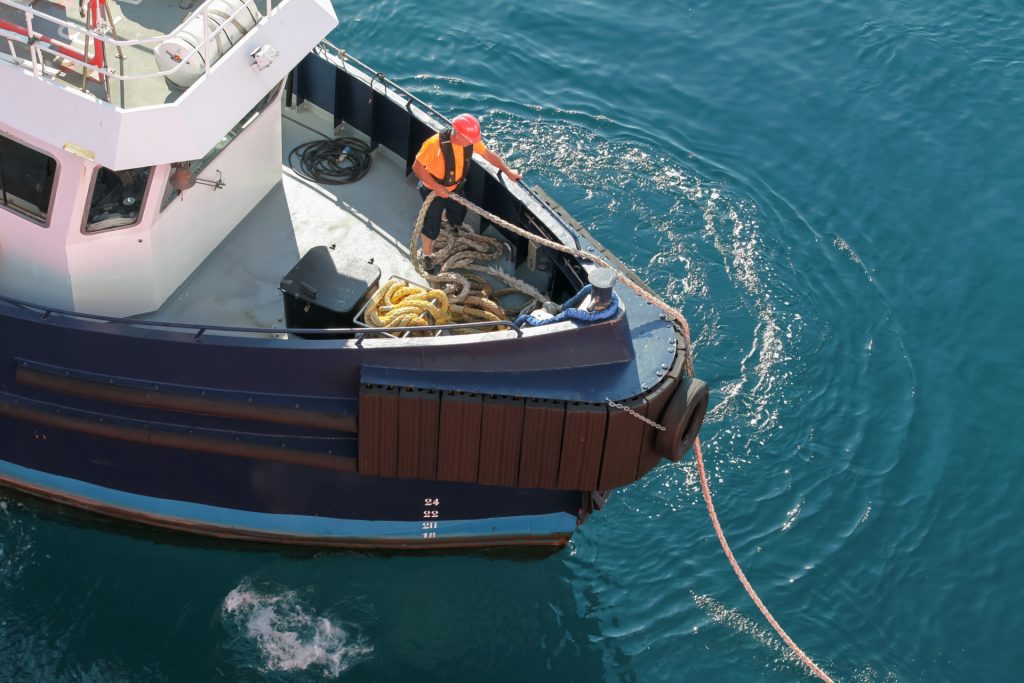Last Updated on May 24, 2021 by The Young Firm
Inspected and uninspected vessels have different laws and regulations that govern them. Whether or not a seaman is working on is an inspected vessel could make a difference in the regulations the employer must follow if an injured worker is pursuing an injury claim. There are two main entities that regulate vessels: the Occupational Safety and Health Act (OSHA) and the U.S. Coast Guard (USCG).
A Louisiana maritime attorney can examine the vessel’s status in which occupational health and safety laws may apply when a worker is interested in pursuing an injury case against a negligent employer.
Inspected Vessel vs. Uninspected Vessel

An “inspected vessel” is one inspected by the Coast Guard and that has been issued a Certificate of Inspection. This may apply to passenger, cargo, and tank vessels. If the vessel is considered to be an inspected vessel, it is subject to regulations from the USCG.
An “uninspected vessel” is one that is not subject to USCG inspection, may not be issued a Certificate of Inspection, and is not a recreational vessel. Fishing vessels, tugboats, and inland dredges may fall under this class of vessel, which may be subject to OSHA regulations.
This doesn’t mean that the USCG may not board a vessel classified as uninspected. The USCG can board uninspected vessels, but occupational safety regulations may be governed by OSHA.
Is the inspected or uninspected vessel in compliance with the law?
As in many cases of accidents that occur offshore, workers may explore their rights under the Jones Act with a Louisiana maritime attorney. He or she may consider whether they may be entitled to recover compensation and file a claim against a negligent employer if the employer’s negligence led to the accident.
However, fault first needs to be evaluated and established. Was the employer for the injuries? Did the employer fail to follow the laws and regulations that govern the vessel?
When examining whether an employer was negligent, a Louisiana maritime attorney will consider whether USCG or OSHA regulations applied in terms of occupational safety and hazard regulation. Once this is determined, the attorney may then examine whether a violation of the applicable regulations led to an injury, which may indicate that the employer was negligent and therefore liable for the seaman’s injury and damages under the Jones Act.
Rights of an Injured Seaman on an Uninspected Vessel
If a Jones Act seaman suffers an injury on an uninspected vessel, a Louisiana maritime attorney may examine the employer’s compliance with Occupational Safety and Health Administration (OSHA) regulations. Failure to follow certain regulations may leave an employer liable for an employee’s injuries if the failure to meet the regulations led to the accident. A Louisiana maritime attorney can discuss the impact of a vessel’s classification as inspected or uninspected on an injury claim.
Under the Jones Act, injured seamen have the right to sue their employer for negligence that leads to an injury. Seamen can receive various types of financial compensation, such as medical expenses, lost wages, and room and board.
However, in order to receive compensation under the Jones Act, the employee must be a considered a seaman in service to a vessel on navigable waters. The vessel does not have to be an “inspected vessel”, which means it is subject to U.S. Coast Guard (USCG) inspection. In fact, many fishing vessels, barges, dredges and tugboats are uninspected, but workers on these vessels may still be covered under the Jones Act.
A Jones Act seaman is described as a person whose main line of work involves contributing to a vessel’s function. This means that even a cook on a ship may be considered a seaman whether or not that ship was classified as an inspected or uninspected vessel. The difference is that the Louisiana maritime attorney may examine employer compliance with USCG regulations for the former, and OSHA for the latter.
More articles on maritime laws and regulations:
- More About UWA and the SEMS Program Requirements
- Maritime Safety: Overview of American Petroleum Institute Regulations
- 3 United States Coast Guard Initiatives for Regulating Maritime Safety
- Do laws require maritime employers to follow OSHA standards?
- Coast Guard and OSHA Memorandum of Understanding (MOU)
- 3 Coast Guard Maritime Safety Programs Designed to Protect Workers

